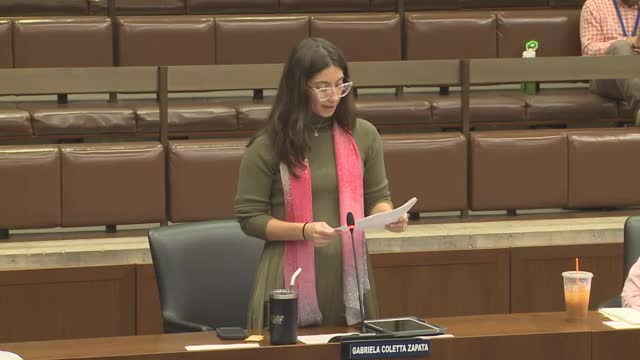Council orders hearing on publicly owned grocery stores and food-access strategies amid SNAP cuts
Get AI-powered insights, summaries, and transcripts
Subscribe
Summary
Councilors filed a hearing order to examine city-owned grocery stores, nonprofit grocers, food hubs and other models to address food insecurity, reflecting concern about recent SNAP benefit reductions and local grocery closures.
The Council filed an order for a hearing to examine the role of publicly owned grocery stores, food hubs and other models in addressing food insecurity across Boston.
Councilor Braden, the primary sponsor, framed the hearing as timely amid reported SNAP reductions and rising food costs; he said the proposal would explore whether city‑supported or city‑owned grocery models could strengthen local food access. Councilor Louie Jen and Councilor Colette Zapata noted related local closures—including Daily Table locations and other nonprofit grocers—and the need to support community-based grocery alternatives such as co‑ops, refrigerated community food hubs, and nonprofit grocery operators.
Speakers and advocates mentioned existing resources including the Boston Food Access Council, the Greater Boston Food Bank’s assessments, the Office of Food Justice (Aliza Wasserman), Dorchester Food Co‑op, Fresh Truck and other community organizations. East Boston sponsors said food deserts and market concentration in some neighborhoods make alternative models worthy of study.
The docket (1791) will be referred to the Committee on City Services, Innovation, and Technology for a hearing; Councilors asked the administration and food‑system advocates to provide models, financial analyses and examples from other cities (Atlanta, Madison, and municipal market models) for the committee’s review.
